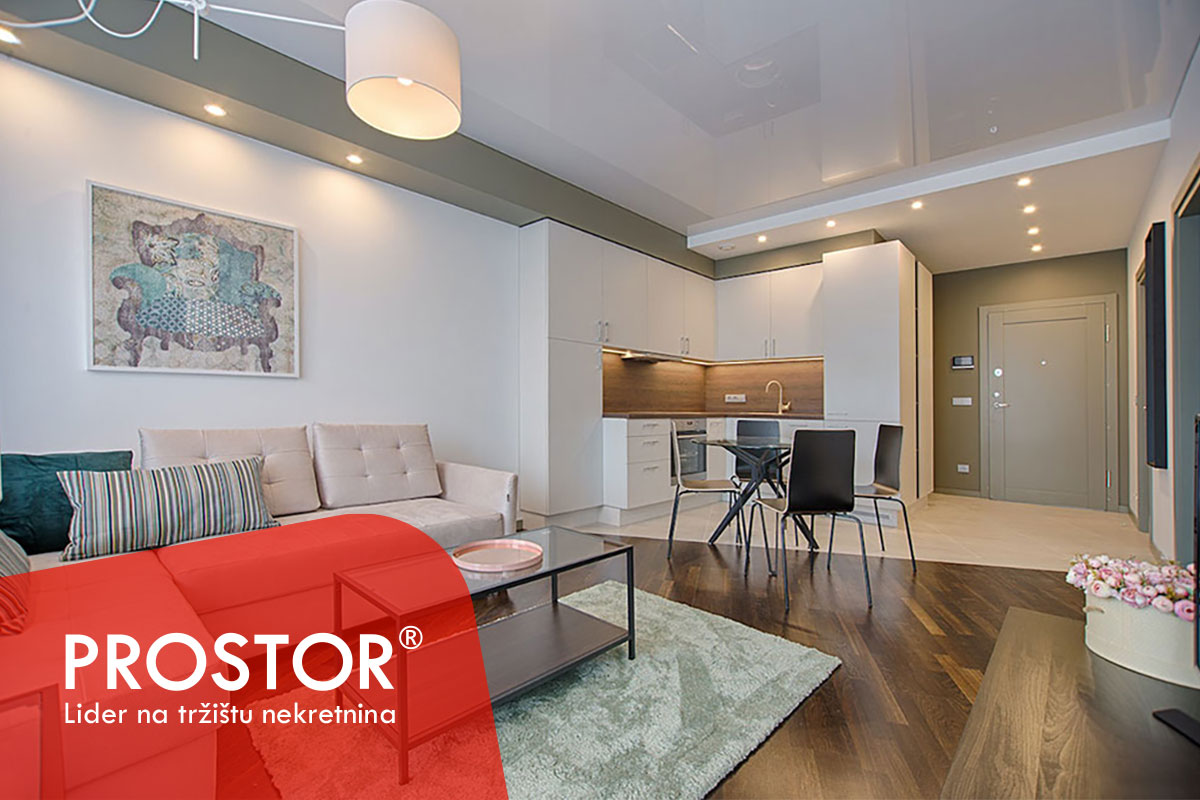What are the key things to consider when inspecting a property?
Viewing a property is not just a practical step in the buying process. It’s a moment when you rationally evaluate the space, assess its functionality, technical condition, and the overall quality of life it offers.
Viewing a property isn’t just a practical step in the buying process. It’s a moment when you rationally evaluate the space, assess its functionality, technical condition, and the overall quality of life it offers.
At first glance, a property may appear perfect-visually appealing, carefully staged, and presented through professional photos that highlight its best features. However, the true value of a space isn't revealed on a screen. It's uncovered in person-when you step into the hallway, notice the smell of the building, check the condition of the utilities, and observe the neighborhood dynamics. In short, you pay attention to everything you won’t find in an ad.
Often, this initial encounter becomes a decisive factor-either confirming your expectations or uncovering details that change your perspective entirely.
In the sections below, we’ll guide you through the most important aspects to look out for during a property viewing. This will help you avoid unexpected costs, identify hidden flaws, and most importantly make a safe and informed decision.
Location and surroundings
Location is one of the most important factors when buying property. While viewing, don't just focus on the apartment or house itself—also consider the surrounding area:
Infrastructure: Proximity to schools, kindergartens, shops, public transport, hospitals, etc.
Safety: Does the neighborhood feel secure and pleasant to live in?
Noise and Traffic: Is the street busy? Can you hear noise from the surroundings?
Parking: Is there free street parking or a garage available?
First impression of the building and entrance
Pay attention to the condition of the building and common areas:
Condition of the facade, staircase, elevator, and hallways. Are there security features like video surveillance, intercom, and good lighting? How clean and well-maintained are the common spaces?
The state of the building often reflects how well the residents manage and care for it.
Actual condition of the property
Regardless of whether you’re viewing an apartment, house, or holiday home, it’s essential to evaluate its actual condition. Look for signs of potential structural issues:
Are there cracks in the walls or ceilings? Are the floors even, or do you notice sloping or dents? Are there signs of moisture in the corners, around windows, or in the bathroom? Is there a musty smell, indicating hidden water damage?
Even minor issues can point to larger structural problems that may require costly repairs.
Utilities and infrastructure
The technical condition of utilities is a key factor to inspect. Pay special attention to:
The state of the electrical system – are there enough power outlets, and do they work? Do all switches and light fixtures function properly? What’s the condition of plumbing fixtures – are there leaks, rust, or worn-out valves? Test the water pressure and how quickly hot water is delivered.
Faulty utilities can lead to discomfort and additional expenses, so spotting problems early is essential.
Doors and windows
Quality doors and windows improve insulation, reduce noise, and increase security.
Are they made of PVC, wood, or aluminum? Do they open and close smoothly? Are the windows double-glazed or triple-glazed? Is there visible damage, air leakage, or condensation?
Low-quality windows can lead to higher heating bills, poor insulation, and further investment.
Orientation and natural light
The property’s orientation relative to sunlight can greatly affect indoor temperature, energy use, and comfort.
How much natural light enters during the day? Are the rooms bright and airy? Are nearby buildings blocking sunlight or obstructing the view?
A well-lit home usually feels more spacious and comfortable to live in.
Documentation and ownership
During the viewing, ask the agent or owner about:
Is the ownership clean, with no legal claims or burdens? Does the property have a valid building and occupancy permit (for houses)? Is the apartment legally registered and subdivided (if applicable)? When was the last major renovation done?
Proper documentation is essential for a secure purchase and future legal clarity.
Ask questions
Use the viewing as an opportunity to ask important and specific questions, such as:
What are the monthly utility and maintenance costs? What is the reason for selling the property? How long has the property been on the market?
These answers can give you valuable insight into the property’s condition and the seller’s motivation.
A thorough property viewing is an irreplaceable step in the buying process. It reveals critical information not visible at first glance. Every part of the space—from construction quality to functionality and surroundings—should be carefully evaluated to ensure the property meets your needs and expectations.
By investing time and attention in this phase, you can avoid potential risks and make the most of the opportunity to secure long-term comfort and safety. The right property choice should be based on thoughtful evaluation—not just first impressions.
Ena-Lemana S.

